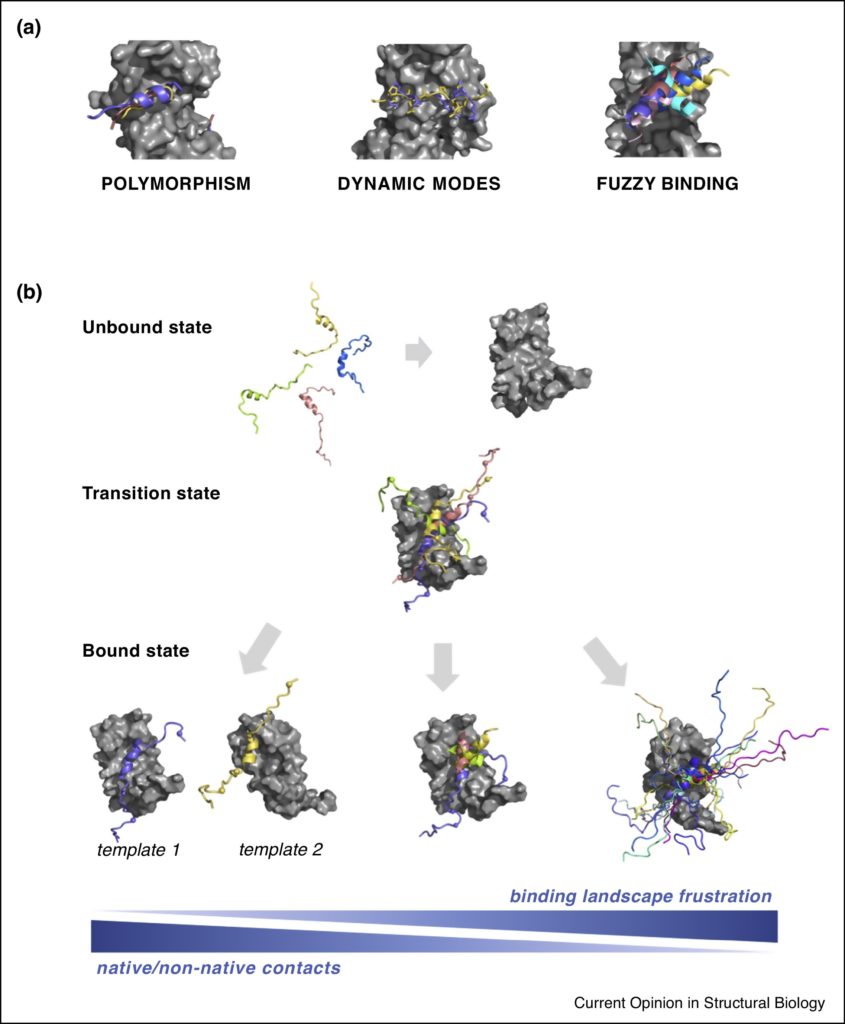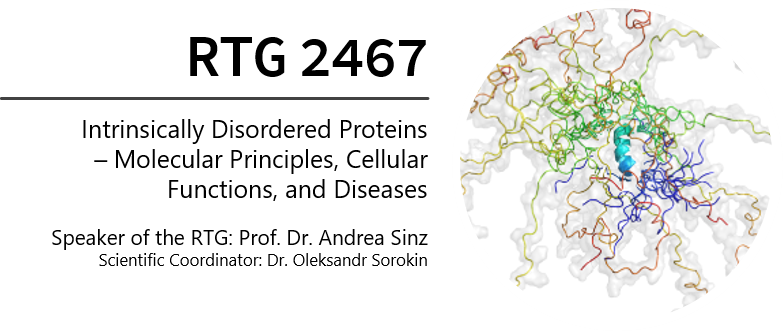Approximately 40% of amino acid sequences in higher eukaryotes are predicted to be intrinsically disordered (intrinsically disordered proteins, IDPs and intrinsically disordered regions, IDRs) lacking defined structural elements. Many of these flexible proteins, and protein regions, have so far remained understudied. This is despite their importance in regulating fundamental biological processes and in the generation of dynamic architectural superstructures, including, e.g., membrane-less organelles. Building on the productive history of molecular protein research in Halle/Saale, the RTG will shift IDPs/IDRs into a major research focus at the Martin-Luther University Halle-Wittenberg.
IDPs/IDRs will be investigated by an interdisciplinary group of research scientists composed of biochemists, biophysicists, and cell biologists. Their complementary scientific background enables studies ranging from the in vitro characterization of IDPs/IDRs to their investigation within cells. A major focus presents the study of IDP/IDR interactions with proteins as well as RNA. All individual RTG projects address key questions on the molecular processes that govern how a single IDP/IDR might adopt multiple conformations upon protein- or RNA-binding.
The projects require state-of-the-art approaches well-suited for IDP research. These comprise biological, biochemical, biophysical, and bioinformatics methods, which create a strong scientific synergy. The RTG will go beyond a mere elucidation of physical and functional interactions of individual protein-protein and RNA-protein complexes. We expect to deduce novel mechanistic insights that increase our understanding of intrinsically disordered structures in cellular systems and within organisms.
The RTG provides a broad spectrum of internationally competitive research training and career coaching. An international advisory board of IDP experts has been assembled to scientifically support the RTG. Students are expected to contribute to the success of the RTG, not only by pursuing their own research projects, but also through learning by teaching and networking with local and international scientists. In addition to benefitting from a series of high-quality lectures and workshops by leading IDP researchers, they will also be trained in how to interact productively within multidisciplinary teams and to communicate their research to different audiences.
Key Questions to be addressed:
- Which conformational and regulatory forms do IDPs/IDRs adopt to mediate cellular information processing?
- What regulatory roles do IDPs/IDRs play in the assembly and function of multicomponent RNA-protein complexes?

